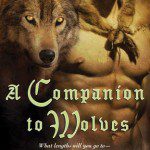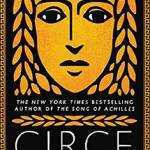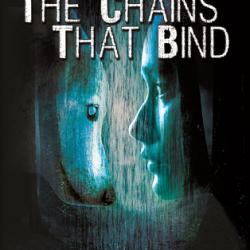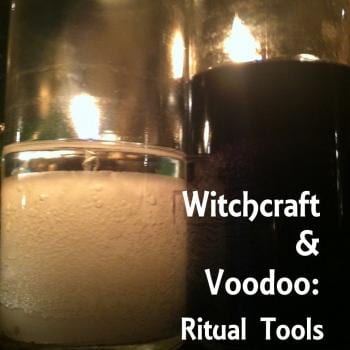 The Handmaid’s Tale by Margaret Atwood
The Handmaid’s Tale by Margaret Atwood
My rating: 5 of 5 stars
Two days and one hundred years ago, women first achieved the right to vote in Canada. This was in the Manitoba provincial election; the federal government followed two years later. So it is perhaps fitting that the day before is the day I finally chose to start reading “The Handmaid’s Tale.”
I’ve been a feminist and a science fiction fan since childhood, so many people have recommended this book to me over the years. The year it was published, 1986, I was eleven. I think someone first recommended it to me in 1991, when I was protesting the Gulf War. I always meant to read it. It was “on my list,” especially as a Canadian. Margaret Atwood is considered to be one of the most significant Canadian writers and “The Handmaid’s Tale” is a feminist icon.
I was not inspired to read it because of the centennial of women’s suffrage in Canada. I was finally inspired to read it because I am doing some science fiction related reading challenges; one to read new-to-me female authors, and the other to read LGBTQ related speculative fiction. “The Handmaid’s Tale” was both on a list of award-winning speculative fiction by female authors, and a list of award-winning LGBTQ speculative fiction. You can find those lists at https://www.worldswithoutend.com/list… and https://www.worldswithoutend.com/list… respectively. Because I’m intending to read a lot of books this year, it was convenient for me that this book, which I meant to read someday anyway, was on both lists.
Let’s just establish, right off the bat, that I think this is an absolutely stunning book. I am glad I waited so long, because I don’t think I would have been mature enough to understand a lot of it until this point in my life. And I have mixed feelings about it. It’s frustrating and disturbing. Atwood has made some statements about it that make me angry. Some of the things critics have said about it make me want to beat my head against a wall. It can be difficult to follow if you’re not used to the style, because it is written in a flow-of-consciousness perspective that changes back and forth between present and past tense. Some have criticized her for this but I’m sure it was deliberate. The epilogue of the book, a fictional history lecture, says that the story was found recorded over some secular music cassette tapes from the 1980s, usually after a few minutes of music have played. So when you read it, picture a woman about forty, maybe forty-five, telling a story in a tired voice that is sometimes deliberately neutral, sometimes choking back tears and other times choking back rage. Listen to her talk; don’t read it expecting standard writing conventions. Perhaps, if you’ve ever heard a woman telling her tale in an interview for the Shoah project, picture her voice sounding like that.
So, yes. Mixed feelings. On the other hand, I chewed through this book in two and a half very busy days, abandoning all my other reading projects after leafing through the first ten pages. I was riveted to the edge of my seat. Would the protagonist live? Would she die? The whole novel was like holding my breath, waiting for what comes next. If Atwood intended us to feel this way — waiting in desperate anxiety — because that was what the protagonist’s life was like, then she succeeded admirably. The suspense was downright torturous. Also, the message . . . the message . . . How subversive. How frightening. What a fantastic wake-up call in so many different ways, and not just in how it pertains to women.
“The Handmaid’s Tale” takes place in an alternate history in which declining birth rates in the mid-eighties, attributed to toxic chemicals, pollution, radiation and other ecological disasters, along with AIDS and a virulent strain of syphilis that caused infertility in most men exposed to it, fell to frightening levels. Women’s independence, the use of birth control, lesbianism and homosexuality, were seen as exacerbating this (and perhaps they did). People reacted with fear, as they often do in such situations, and a religious Christian fundamentalist cult rose to power, toppled the United States government, shot the President and most of the Congress, and formed the Republic of Gilead. They used a symbol and a militant ideology never seen before. And suddenly the lives of women drastically changed.
Because all money had become electronic and there was no paper money, they started by freezing the bank accounts of anyone with an F attached to it rather than an M, and they forced people to fire all women from their jobs. Women were denied the right to own property. Men and women who were in second marriages or extramarital relationships, or anyone who was gay or lesbian, were declared unpersons. Their children were taken from them because they were considered to be “unfit parents,” and women so classified with viable ovaries were forced through reeducation camps, with cattle prod wielding “Aunts,” to become Handmaidens; that is, broodmares to the rich and powerful. Women of the right status and religious background were assigned in arranged marriages as Wives to significant and powerful men; women who were no longer fertile but weren’t “undesirable” were assigned to be “Marthas” (maids,) “incorrigible” women were taken out of official existence to become “Jezebels” (sex slaves,) and those who were too old to do anything else or beyond “reformation” (accomplished through a combination of brainwashing and torture) were sent to the Colonies to clean up toxic waste and radiation until they died. All of them were assigned different modes of dress to signify their role. Jezebels never went out in public and never left the brothels they’d been assigned to; Handmaids could only go out in pairs so that they could spy on each other and only to do specifically assigned tasks, wearing a red habit with winged wimples described as “blinders” so they couldn’t see out of the sides. All “vanities” such as immodest dress and makeup were banished and women were forbidden even the right to read. Conversely, men were denied the right to marry until they had proven themselves to the people in power, and were forbidden sex or even masturbation until that time also.
Lots to be discussed here. First of all, critics of the novel have tisked at how unlikely they feel this is to happen in the glorious United States of America. Except that I’ve seen many disturbing echoes of Atwood’s predictions in our society right now. How so many things are blamed on Islamic terrorism. How gradually freedoms and rights and privacy have been eroded in the name of “safety” and “security.” How we are gradually being railroaded into giving up paper money. The anti-abortionists, the censors in Britain. The backlash against LGBTQ rights; the “bathroom” laws. The systematic discrediting of feminism and of Planned Parenthood. Encouraging intolerance as a religious “right.” I won’t lie; you guys to the South of us are beginning to scare the shit out of me.
Some critics have said that they just don’t see all of this happening this quickly. But it has, and it is happening right now. The state of women in the Middle East, two generations ago, was comparable to that of women anywhere else in the world at that time. When the Soviet Union broke up much of Eastern Europe erupted into a seething hotbed of “ethnic cleansing.” In a mere five years in the late 1930s Germany transformed from a modern 20th century country to a totalitarian regime which is still causing shockwaves in our world culture. And in the Islamic State, right now, women are being given to jihadis as brides or sex slaves. I think of American “purity balls” and I shudder.
The story is set in what used to be Boston, Massachusetts, and the choice was made to emphasize the United States’ history of Puritanism. The corporate media and the religious right have been building up our political climate for something like this since at least 1991. I am not a doomsayer; I don’t believe in end-of-the-world prophecies; but I am a student of history and if you don’t recognize the parallels and it doesn’t concern you, you’re being willfully blind.
In order for such a regime to exist, you must create a hierarchy of haves and have nots, and so Atwood establishes that hierarchy in vivid detail. The Unwomen of the Colonies were the bottom of the food chain, deprived even of a right to life and health. The Jezebels at least had the privilege of that; though of course they were deprived of the right to liberty and personhood and were required to service the men who came to them. The Handmaidens came next, who at least could live and go out in public, though of course they, too, were required to do what was commanded of them, perform sexually for men, and had severe restrictions on their behaviour, their speech, and even were denied the right to a name; being called “Of-” plus the first name of the Commander they belonged to. The Handmaiden of the tale was called “Offred”; we never learn her real name. The Marthas were not required to spread their legs on command but were menial servants. The Wives had to obey their husbands but otherwise were the mistresses of the household. Aunts held an in-between place in which they are given extra privileges; what those were weren’t defined, but they earned their extra privileges by disciplining the Handmaidens, as some Jewish people earned extra privileges in the death camps by disciplining their fellow Jews. And above all of them, the young men, who at least had the right to read and go where they wished; then the Guardians, who were the foot soldiers; then the Commanders who were effectively above the law; until they weren’t.
One cannot help but consider the issues of intersectionality of our own time. Our corporate masters give lip service to religious fundamentalism to whitewash their activities and control the populace through “moral instruction.” They tell women not to complain about the inequalities they are handed, because they could be transgendered. They tell white people in poverty not to complain because they could be black and thus subject to being shot in the street, even for being a twelve-year-old with a toy gun in an open carry state. That’s how they control us. And we really need to stop allowing it, because the elite, whoever they are, will keep pushing until we force them not to. This, ultimately, is the message behind “The Handmaid’s Tale”; the sad reminder that we must band together, and view an assault on the rights of any one of us as an assault on the right of all of us. Otherwise, who will be there to help when they come for you?
Atwood sometimes receives anti-feminist criticism because her male characters are two-dimensional (true) and because even Offred’s former husband Luke was suspect. When women were denied the right to own property, hold jobs and have money, he put his arms around her and said, “You know I’ll always take care of you.”
Perhaps he didn’t react the way we thought he should have. We might think that Luke should have immediately said, “Okay, let’s run for the border.” But lots of Jews stayed in Germany because they just couldn’t believe that what was happening was actually happening. No one would go that far . . . would they?
I also believe that Atwood’s purpose in having Luke react in this way was to point out how complicated gender dynamics are. Let’s be frank; in many ways, modern feminism is a brand new thing. For centuries men have owned all the property (actually, I believe property rights created the patriarchy) and all of their identity has been wrapped up in their net worth and how well they can take care of their families. Feminism, especially social feminism, challenges that. It causes us to question what it is that makes one a man. Even now, women will rarely marry a man who makes less money than she does, and if she chooses to, people keep telling her to ditch the bum. If we had true gender equality, what difference would it make?
I have said little about the writing in the wake of the politics and the message. On one hand, I must compliment Atwood on her brilliant, liquid prose. Every word chosen is there for a reason; every symbol means something (for instance, the Handmaidens wear red, which of course hearkens back to red light districts, the Scarlet Letter, and also menstrual blood; red in Western culture is the colour of sexuality and fertility, as well as of anger, passion, and blood). It’s truly a pleasure to read such a good writer.
On the other hand . . .
You may be a bit surprised, after my glowing explanation of the message and the politics, when I say that really, Atwood’s story isn’t all that original. Dystopian societies meant to highlight challenging modern political issues are nothing new in science fiction. Nothing new at all. “1984” should come immediately to mind. Remember, Big Brother is always watching (and keylogging your internet usage).
Which is why it makes me gnash my teeth in fury that Atwood had the audacity to claim that this story wasn’t science fiction. She actually said (in an interview included in the back of the edition I read) that “Science fiction is filled with Martians and space travel to other planets, and things like that.” But she was nominated for a Nebula and she won the Arthur C. Clarke Award. I shake my head in dismay. I’m sure Ms. Atwood knows perfectly well that what she’s talking about is only one sub-genre of science fiction, known as “space opera.” Let’s face it, the real reason she said that is that she was afraid that they would take away her magical “literary writer” card if she lowered herself to writing mere “genre fiction.” And why isn’t “literary” considered a genre? Snobbery and nonsense. Ursula K. LeGuin, easily her equal in this craft, responded to that “but isn’t this science fiction?” question with bold statements that she could see no reason why genre fiction should be considered less “literary.”
Science fiction fans get so tired of this. I am reminded of how everyone, including James Cameron, was soooo convinced that “Avatar” was so original, when basically he wrote “Dances With Wolves” with special effects and I’ve seen even his variation of it as least twice in popular sci-fi novels written in the 90s or earlier. I suppose if you’ve never read science fiction this might look original, but literary critics have a lot of gall claiming that it is if they sneer at my beloved “genre fiction.”
However, Brian Aldiss argued in his book “Billion Year Spree” that reading science fiction is generally a lot different from reading other forms of fiction. When someone is described as looking up at the green sun, we assume the sun is green, not that this is a metaphor for something else, and that it will be explained later. One thing that is clear is that Atwood is not writing to science fiction audiences. And that might be a good thing. I referred it to my mother, who has never understood my love of science fiction, in the hopes that it will help to bridge the gap.
And thus I, as many others have, found the epilogue annoying at best, and wish that Atwood had simply let the book end when it did. First of all, it didn’t wrap up any of the things that were left up in the air. Some things we will never know for sure. Second, I don’t feel it added anything at all that I didn’t already know. I did not feel that the nature of the Gilead Regime or who, exactly, some of the characters were required any further explanation than was already given. Fictional lectures to give perspective to science fiction stories have been tropes since Robert Lewis Stevenson first delved there in “The Strange Case of Dr. Jekyll and Mr. Hyde.”
That epilogue has also annoyed feminist critics. But maybe that was the point. The (male) professor giving the lecture on “The Handmaid’s Tale” pooh-pooh’s Offred’s style and level of education. He remarks that it’s clear that Offred was an educated woman (“as educated as anyone can be in 20th century America”,) which the class chuckles at, and then he goes on to say that since she was so educated, how much more valuable this document would have been if there had been some information about the nature and structure of the powers-that-be in Gilead, if she had included dates, wars, important commanders, that kind of thing.
I say that maybe this was the point, however, because in the first place, it points out how quick we are to sneer at our ancestors, and how much more advanced we always believe ourselves to be, even when we’re not; and perhaps she was also critiquing how our white privilege and militant Anglo culture is always so much concerned with who is important rather than the suffering and experience of ordinary people. Is this a commentary on the way we teach academic history?
Despite my quibbles and its flaws, however, this suspenseful, subversive, emotional and beautifully-written novel is perhaps more relevant in our time than ever before. Everyone should read it at least once, and sit with the things that it forces us to think about. I am inspired once again to band together, defend the rights of the underdog, and seek out the company of other women.
Like Between the Shadows on Facebook and never miss a post!

















